Last week (January 24, 2020) the Willamette Heritage Center (WHC) opened a new exhibit looking at the history of clubs and organizations in the Mid-Willamette Valley. In preparation for the exhibit, we scoured the Center’s own collections for documentation of different clubs that have called this region home. Two small paper invitations stuck out to me. The cards, just a few inches wide and delicately printed on heavy stock, announce events held by the Filipino Club of Salem to commemorate the “anniversary of the death of Dr. Jose Protacio Rizal y Mercado the martyred Filipino hero” during the 1920s. An epitaph like that begged more research. Even though sparse, the newspaper record helps shed a little more light on Salem’s early Filipino community.
José Protasio Rizal Mercado y Alonso Realonda was a renaissance man. An ophthalmologist by trade, he also wrote books and poetry. He advocated for reforming Spanish Colonial rule in the Philippines while an expatriate and in exile.[1] While Salem papers giving a brief history of Rizal wrote: “After his noted career he died in 1896,”[2] the story is grimmer than that. After being convicted of sedition, he was executed by firing squad at age 35.[3] His legacy and death are still remembered by Rizal Day, an annual celebration held in the Philippines on the anniversary of his execution – December 30th.[4]
Based on the invitations in the WHC’s collections and the newspaper record, yearly celebrations of José Rizal were put on by the Salem Filipino Club from 1919-1930. While the program changed from year to year, generally the event included a banquet, speeches and music and was held in late December, loosely around the time of Philippine national holiday.[5]
These celebrations weren’t small or obscure affairs. They were public events that featured large crowds and celebrity appearances. The first program held in 1919 was attended by 141 people from all over the state.[6] The review of the event in the Oregon Statesman as claimed it “was attended by a large number of the society folk of Salem.”[7] Speakers of honor were political leaders and academics. The first program featured remarks by Oregon Governor Ben Olcott and an address by Professor Frank Abbott Magruder[8] (Oregon Agricultural College (now OSU) Political Science Professor, namesake of the Camp Magruder and author of a highly contentious textbook on American political history).[9] Governors, Salem mayors, and Willamette University professors and presidents would continue to make speeches at the event throughout the next decade.[10]
The program often included educational speeches and lots of music. Addresses like “International Relationship Between the United States and the Philippines,”[11] “Life and Works of Dr. Jose Rizal”[12] and “The Filipino Flag”[13] were meant to educate the audience about the cultural and political history of the two countries. Music was often provided by the aptly named, but not fully described Filipino Orchestra. One year, guest musician Emilio Bonislau was brought in to perform on guitar. Billed by the paper as “one of the world’s best Filipino guitarists,”[14] Bonislau regularly performed on the radio in the Bay Area and taught guitar in Seattle.[15]
Despite the detailed descriptions of the celebrations, little else appears in the newspapers to shed much more light on club history. One description of the annual event noted that the club “meets twice every month.”[16] In the only newspaper mention of the club outside of the annual celebration I could find, describes the gift of a subscription to The Philippine Republic newspaper to the Salem Public Library with the hopes that it would be “of great aid to the people of Salem in providing first hand information concerning the present and future Philippine situation.”[17]
Far from a complete membership roster, club members are often listed as participants in the programs of the Rizal Day celebrations. Many were students that had come to Salem to continue their education, first at Salem High School and later at Oregon universities. Some may have come because of the Pensionado Act, passed in 1903 by the U.S. Congress to sponsor young men from the Philippines to study in the U.S. while the islands were under American Colonial rule.[18] Whether they were part of this program or not, the 1918 Class of Salem High School, included 5 Filipino students, several of whom would go on to study at Willamette University and Oregon Agricultural College (now OSU) and actively participate in the Salem Filipino Club.
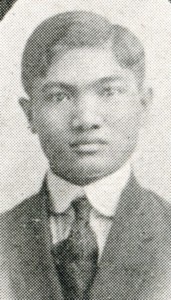
Bernardo B. Gapuz portrait. Photo Source: Salem High School Clarion (Yearbook) 1918. WHC Collections 1997.021.
Bernardo Barnachea[19] Gapuz, was a sophomore at Willamette University when he gave the speech “Spirit of the Philipines” at the 1919 Salem Rizal Day celebration. Like many of his Salem High classmates, his early life is easier to tease out than his later life. Gapuz was Born in Bauang, La Union, Phillipines in 1899[20] to Vincente R. Gapuz and Justa Carnachea.[21] In 1917, he took the ship Shinyo Maru from Hong Kong to San Francisco en route to Salem.[22] He attended and graduated from Salem High School in 1918. While his high school yearbook said he was planning on studying law at the University of Minnesota, [23] he ended up enrolling at Willamette University. Soon after starting at the school and despite questions about his citizenship status and eligibility for the program,[24] Gapuz enlisted in the S.A.T.C. (Student Army Training Corps)[25], a World War I officers training program on campus.[26] In addition to his school work, military training, and participation in forensics competitions,[27] Gapuz also put in hours working as a “servant” for the Frederic D. Thielsen family on Fairmount Hill.[28] From there the trail goes a colder. He doesn’t show up in Willamette University publications (newspaper or yearbook) after 1920. A Bernardo Gapuz does show up in Washington, D.C. city directories from 1923 – 1928 and newspaper articles indicate that while working as a typist and clerk for the U.S. Navy, he attended classes at George Washington University.[29] This Gapuz passed the Bar Exam for the District of Columbia in 1927[30] and graduated from GWU with a Master of Arts in 1928.[31] The rest of Gapuz’s life is still a mystery. There is a reference to a Bernardo Gapuz serving as a member of the Provincial Board in the Philippines in 1940, but fewer ways to determine if this is the same person or not.[32]
Still more mysteries remain as to why the Salem Filipino Club fades from view after 1930. No more mentions of an annual celebration could be found in local newspapers. The stock market crash of 1929 severally impacted the funding for Pensionado program,[33] presumably restricting the number of students coming to the United States, and in turn, Salem. Maybe this influenced membership in the club as well? In any case, it would be another 60 years before the Greater Salem Filipino American Association would be founded to help promote Filipino-American community and culture in Salem.[34]
Do you know more about the early Salem Filipino Club? We would love to know more!
This article was written for the Statesman Journal by Kylie Pine and published February 2, 2020. It is reproduced here with citations for reference purposes.
Sources
[1] De Leon, Susan G. “Rizal Day: Customs, Traditions & Celebrations.” Philippine Information Agency https://pia.gov.ph/features/articles/1032154
[2] “Filipino Club is Host Here.” Oregon Statesman 31 Dec 1919 pg 4.
[3] De Leon, Susan G. “Rizal Day: Customs, Traditions & Celebrations.” Philippine Information Agency https://pia.gov.ph/features/articles/1032154
[4] “Rizal Day.” Wikipedia: https://en.wikipedia.org/wiki/Rizal_Day.
[5] “Rizal Day.” Wikipedia: https://en.wikipedia.org/wiki/Rizal_Day. “Rizal Day is a Philippine national holiday commemorating the life and works of José Rizal, a national hero of the Philippines. It is celebrated every December 30, the anniversary of Rizal’s 1896 execution at Bagumbayan (present-day Rizal Park) in Manila.” It should be noted that the article from the Oregon Statesman dated 31 December 1919 pg 4 lists Rizal’s birthday as December 30. This is an error by the paper.
[6] “Filipino Club is Host Here.” Oregon Statesman 31 Dec 1919 pg 4. “Members from Oregon City, Portland, Corvallis and Salem were here. Including the guests there were 141 persons present.”
[7] Untitled section beginning “The Filipino club of this city.” Oregon Statesman 4 Jan 1920 pg 8.
[8] Untitled section beginning “The Filipino club of this city.” Oregon Statesman 4 Jan 1920 pg 8.
[9] See: Camp Magruder History: http://www.campmagruder.org/history.html and various articles nationally on Magruder’s textbook and banning. Example “Chicago Eyes Disputed Text.” Tyler Morning Telegraph. 2 Nov 1949 pg 4.
[10] Guests listed in newspaper articles include:
Judge Henry L. Benson (1919); Drs. Doney and Canse of Willamette University (1925-26), Emilio Bonsilau – famous Filipino guitarist (1925), Salem Mayor Tom Livesley (1929); Governor Norblad (1930).
[11] Untitled section beginning “The Filipino club of this city.” Oregon Statesman 4 Jan 1920 pg 8.
[12] “Filipino Club Holds Annual Banquet.” Oregon Statesman 1 Jan 1931 pg 5.
[13] Untitled section beginning “The Filipino club of this city.” Oregon Statesman 4 Jan 1920 pg 8.
[14] “Will Celebrate.” Oregon Statesman 27 December 1925 pg 5.
[15] A complete biography of Bonislau could not be found pre-written. The follow notes were pulled up during the course of research. WWII Draft registration materials say he was born in Leyte, Philippines 17 Aug 1885 (card filled out in Seattle in 1942. 1937 City Directory for San Francisco lists him as a Musician in that city. 1940 US Census shows him as a guitar teacher in Settle. Radio Program in the Oakland Tribune 12 July 1934 pg 22 lists him on the program on KTAB radio. Advertisement in The Jewish Transcript 23 October 1961 lists Emillo A. Bonsilau teacher Classical Guitar specializing in South American Fisher Studio Building, Seattle (http://jtn.stparchive.com/page_image.php?paper=JTN&year=1961&month=10&day=23&page=4&mode=F&base=JTN10231961P04&title=The%20Jewish%20Transcript). A Broadcast Weekly program dated 10/2/1932 for KTAB radio in Oakland lists Emilio Bonislau https://www.americanradiohistory.com/hd2/IDX-Site-Early-Radio/Archive-Broadcast-Weekly-IDX/IDX/30s/Broadcast-Weekly-1932-10-02-OCR-Page-0045.pdf.
[16] “Filipino Club Pays Honor to Dr. Jose Rizal.” Capital Journal 31 Dec 1930 pg 4.
[17] “Local News in Brief.” Oregon Statesman 2 Jan 1927 pg 5.
[18] Pensionado Act. Wikipedia. https://en.wikipedia.org/wiki/Pensionado_Act
[19] Spelling of name is contested in record. Oregon Military records have it transcribed Barnachea. Willamette Collegian October 30 1918 has it spelled Barachea
[20] His military records list birthdate of 8/20/1899 (see WWI Draft Card and Oregon Military Records). However, the passenger list in 1917 lists birthdate of 8/20/1900. Should also be noted that in the Directory of Filipino Students in the United States, 1920 he is listed as being from Urayong, Bauang, La Union.
[21] Transcription of Oregon Military Records via FamilySearch.org. https://www.familysearch.org/ark:/61903/1:1:QPTM-JTYK. Should be noted the Justa Gapuz is listed at Bernardo’s closest relative in his WWI U.S. Draft Card. Also noted that these records appear to have been taken from collection at Oregon State Archives. http://genealogy.state.or.us/detail.php?id=599135.
[22] Ships Passenger Records for the Shinyo Maru accessed via FamilySearch.org https://www.familysearch.org/ark:/61903/3:1:33S7-95GW-9M24?i=191&cc=1916078&personaUrl=%2Fark%3A%2F61903%2F1%3A1%3AKX4X-FSM
[23] See The Clarion Yearbook for Salem High School 1918. WHC Collections 1997.021.
[24] “Gapuz is SATC Man.” Willamette Collegion. Volume 30, Issue 2 pg 1. October 30, 1918. https://libmedia.willamette.edu/cview/collegian.html#!doc:page:collegian/19181030/jp2/0/15/0/1
[25] More history of the SATC: https://exhibits.library.jhu.edu/exhibits/show/hopkins-and-the-great-war/homewood-campus/experiences/student-army-training-corps
[26] See US Veterans Schedules accessed via FamilySearch.org https://www.familysearch.org/ark:/61903/3:1:3Q9M-CS1N-QSPS-F?mode=g&cc=2968245&personaUrl=%2Fark%3A%2F61903%2F1%3A1%3AQPJQ-V3Q7. Enlistment date 9/30/1918. Discharged 12/16/1918.
[27] “Plans are Set for Forensics” Willamette Collegian 12 Jan 1920 pg 1 https://libmedia.willamette.edu/cview/collegian.html#!doc:page:collegian/19200114/jp2/3/15/0/1
[28] 1920 US Census. Salem Ward 7. Enumerated as “Servant” in the household of Frederic D. Theilsen. Theilsen residence was on Reservoir Street in an unnumbered dwelling. Reservoir shows up on 1927 Sanborn as west of John Street and North of West Luther Streets around the Salem Water Co’s Reservoir.
[29] “Contest for Filipinos” Evening Star 29 Nov 1925 pg 20 lists him as a student at GWU.
[30] ““215 Bar Aspirants Pass Local Test.” Evening Star 08 Aug 1927 pg 1
[31] “Degree to 452 to be given at GWU exercises tonight.” Evening Star 13 June 1928 pg 22
[32] 1940 Oct 14 Honolulu Advertiser “Sayre seen successful as Commissioner in PI” Bernardo Gapuz provincial board.
[33]Pensionado Act article https://en.wikipedia.org/wiki/Pensionado_Act, quotes Regis, Ethel Marie P. (Fall 2013). Mediating Global Filipinos: The Filipino Channel and the Filipino Diaspora (PDF) (Doctor of Philosophy in Ethnic Studies dissertation). University of California, Berkeley. Retrieved 4 August 2018.
[34] See Greater Salem Filipino-American Association Facebook page (https://www.facebook.com/pg/Greater-Salem-Filipino-American-Association-198440400252590/about/?ref=page_internal) lists founding date as 1990. See also description of the founding of the club in “Best of Both Cultures is Goal.” Statesman Journal 29 Jun 1999 pg 3C and the description of how Jorge Juliano helped to found the Greater Salem Filipino-American Association in the early 1990s after “the lack of an organized Filipino presence in Salem proved to be a culture shock for him” after his immigration.



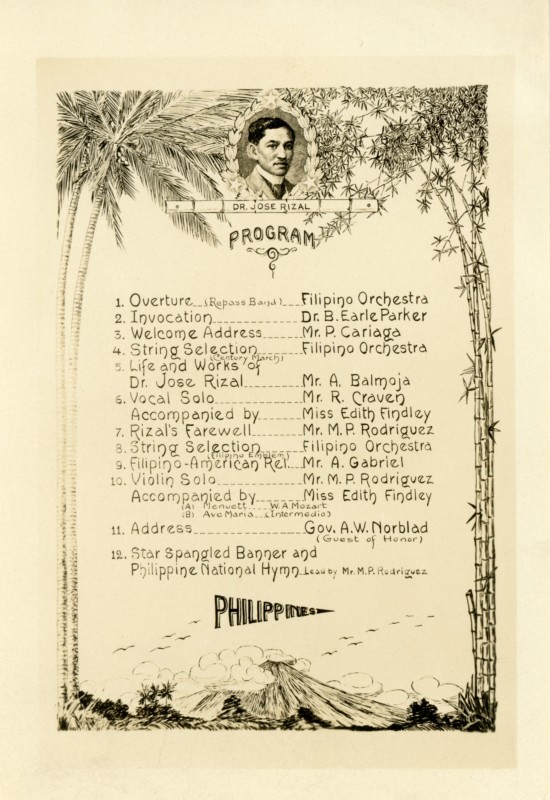
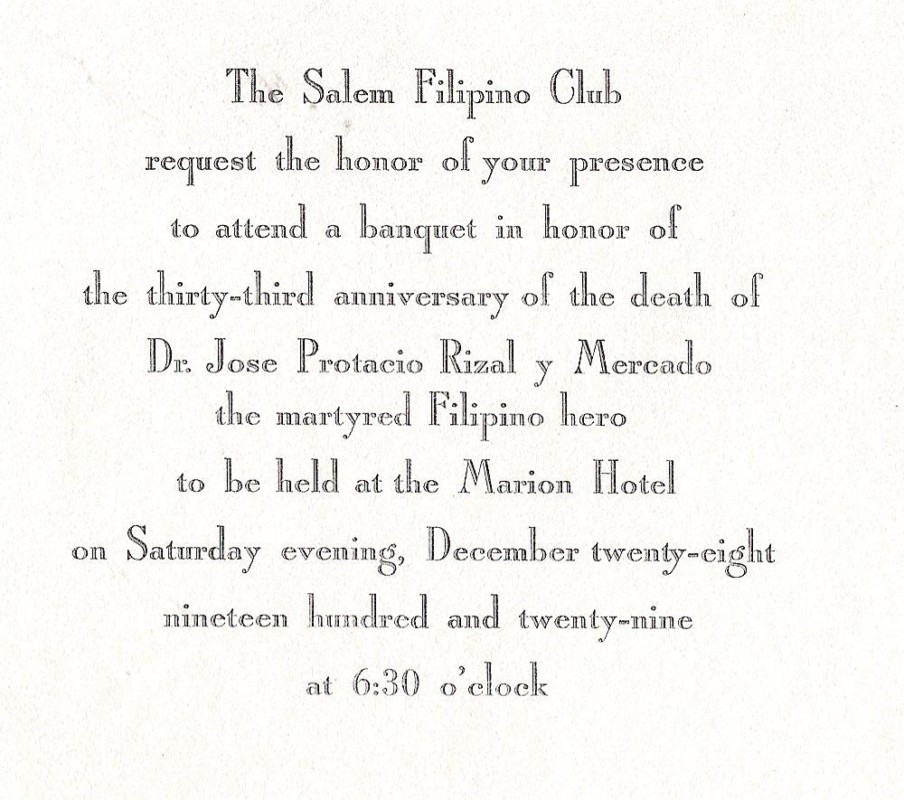
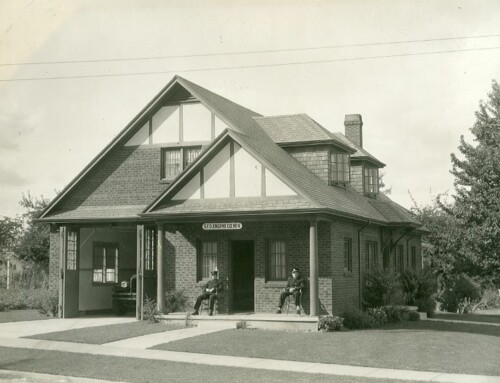
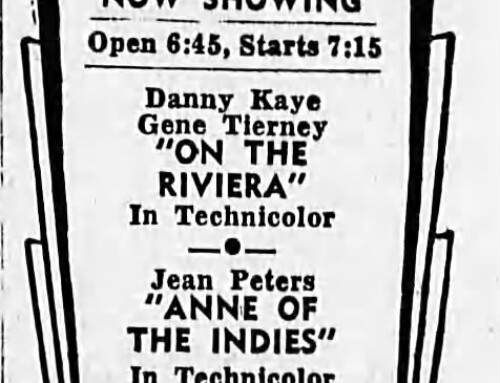
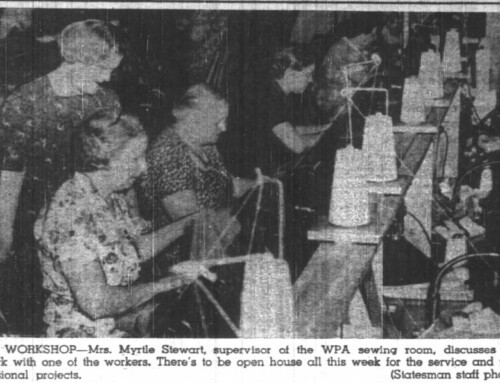
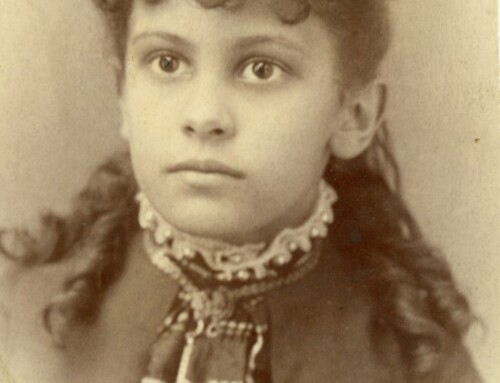
Leave A Comment